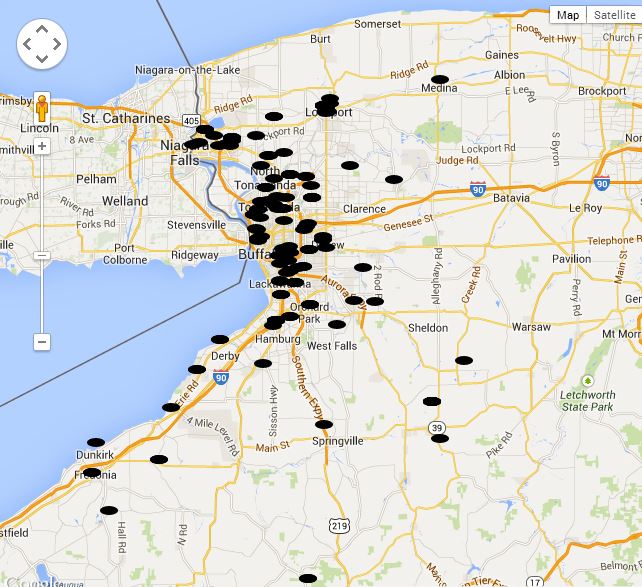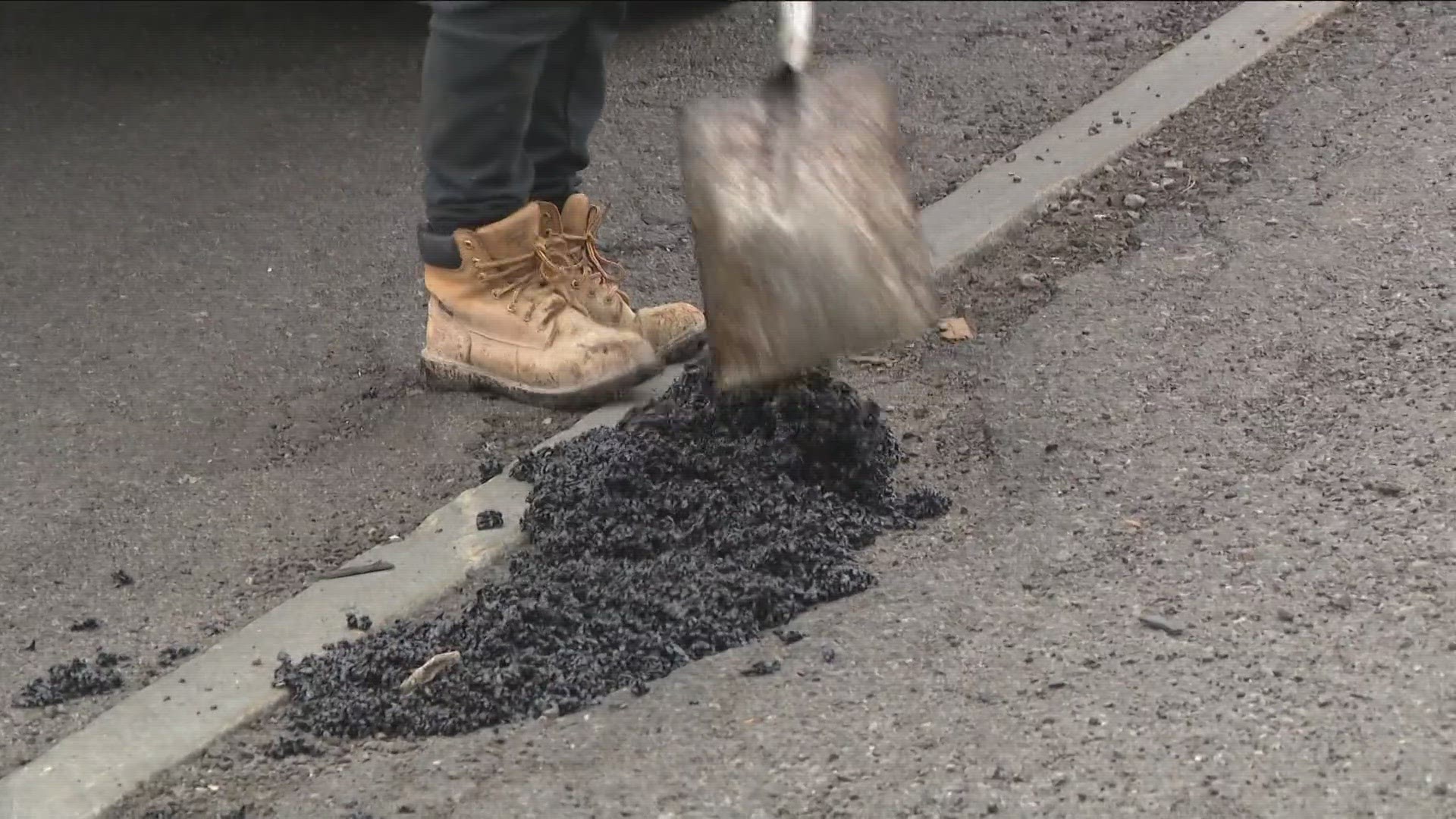AMHERST, N.Y. -- For drivers along Hopkins Road in Amherst and pretty much every roadway in Western New York, the potholes are becoming more than just a nuisance. More and more people are paying for major repairs to their vehicles.
This pothole season is the worst in 20 years, according to Erie County Director of Engineering Charlie Sickler.
"I apologize," said Sickler, acknowledging the frustration many drivers feel. "We're doing all we can."
WEB EXTRA- Check out a map of the worst potholes in WNY
Sickler says only "cold patch" works this time of year, and its effectiveness is limited.
In some cases it may only last a few days, Sickler said, adding that it can sometimes hold for up to 3 weeks.
In Lockport, residents have complained about Bartz Road. One viewer sent us pictures of the potholes, which caused several hundred dollars in damage to his vehicle over the weekend.
Highway Superintendent David Miller said Bartz one of many roads with potholes.
"It's not even one of the worst in the town," Miller said. However, by the time 2 On Your Side got to the road, crews had already filled it with cold patch.
Miller, like Sickler, said cold patch is a temporary and frustrating fix. Miller's crews are focused entirely on the worst of the worst, due to the cold patch's short repair period.
"If we filled all the potholes, that's all we would have time to do," Miller said, noting his crews are still slammed plowing and treating roadways. Winter isn't over, after all.
In Erie County, Sickler said all the county-controlled roadways will be assessed around early spring. Each will be given a rating from 1 to 10. Vehicle counts on each road will also be taken into consideration. The county will use that data to determine which roads get a more permanent fix. That can't happen until the hot asphalt plants open in the spring.
This year, Sickler anticipates about 200 miles of roads in Erie County can be given the more permanent fix, either through an oil and chipping process, an overlay, or a full reconstruction.
In the meantime, crews will continue to lay cold patch, despite its cost-ineffectiveness.
"It's better than nothing," Sticker said.


